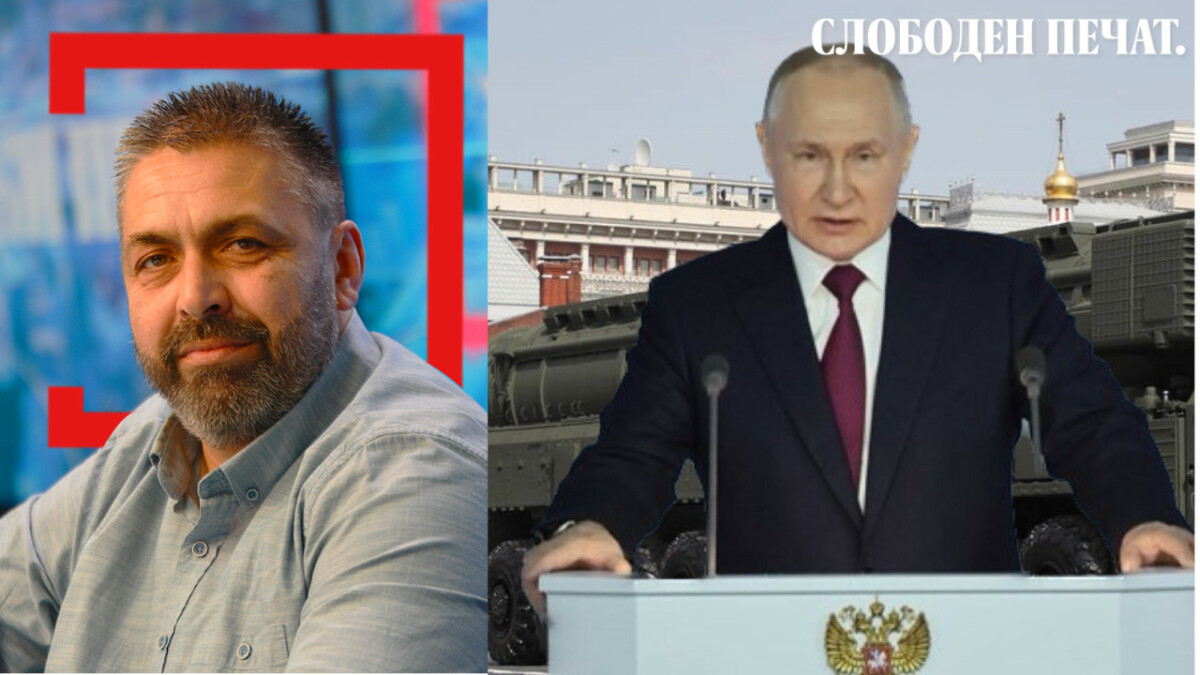VIDEO | Andonovic: Nuclear threat or bluff: What did Putin deploy in Belarus?
Putin's announcement that he will deploy tactical nuclear weapons to Belarus has raised the threat level in Europe.
However, many experts claim that the weapons that Putin plans to transfer to Belarus are not strategic nuclear weapons, that is, they are not intercontinental ballistic missiles capable of destroying life on Earth.
Tactical nuclear weapons (TNW) are portable, non-strategic nuclear warheads used to achieve specific tactical advantages on the battlefield. Analysts describe tactical nuclear weapons as intended to win the battle, while strategic weapons are intended to win the war.
Tactical nuclear weapons have less explosive power than strategic weapons, which can make them more militarily useful and less politically objectionable, and thus more likely to be used. Although tactical nuclear weapons have less explosive power than strategic weapons, the use of just one nuclear warhead would have catastrophic humanitarian consequences.
The atomic bomb that the United States dropped on the Japanese city of Hiroshima in 1945 had a power of about 15 kilotons whose explosion killed about 140.000 people.
In the current Russian arsenal, bombs with this power are considered one of the smallest and weakest weapons in terms of power
Few know exactly how many tactical nuclear weapons Russia possesses. However, it is clear that Russia has a huge numerical superiority over its US and NATO allies when it comes to tactical nuclear weapons. Washington believes Russia has about 2.000 such nuclear warheads, 10 times more than the United States. whose arsenal combats such missiles, half of which are located in bases in Europe. These B61 nuclear bombs range from 0,3 to 170 kilotons, and are deployed at six air bases across Italy, Germany, Turkey, Belgium and the Netherlands.
According to the Russian nuclear doctrine, the Russian president is the last in line to decide when it comes to the use of Russian nuclear weapons, whether strategic or tactical.
The so-called nuclear briefcase or "Cheget" is always with President Putin. Russian Defense Minister Sergei Shoigu and Chief of the General Staff of the Russian Army Valery Gerasimov are believed to have such briefcases. The briefcase is linked to a special communications system codenamed "Caucasus" that supports communication between senior government officials at a time when decisions are being made about the use of nuclear weapons. If the authorities in Moscow judged that Russia was facing a strategic nuclear attack, President Putin could use the briefcase to send a direct launch order to the General Staff command, which in turn has the nuclear codes.
Putin has repeatedly threatened the possibility of nuclear war in the past, almost every time Russia's military operation in Ukraine faces failure. This may explain why he has decided to deploy weapons to Belarus right now, Western military intelligence officials say. According to them, Russian forces are suffering huge losses and have made little progress in ground battles in Ukraine.
Apart from a few new trade deals with China, Putin got nothing concrete in his last meeting with Xi Jinping. There is also the International Criminal Court, which recently issued an arrest warrant for Putin.
All this, according to Western analysts, indicates that Putin could use this "trump card" to gain a certain advantage on the battlefield.
On the other hand, with this move, Moscow practically and officially involves Belarus in the war. Although President Lukashenko openly supported the Russian invasion and, above all, the confrontations with the West, Belarus has not yet had any official involvement in the conflict, at least not publicly. By allowing the deployment of these missiles, along the border with NATO and the EU, Belarus is practically directly involved in the war.
It remains to be seen what will be the response from the confronted side.
For now, according to the American Institute for Military Studies, this move by the Kremlin means nothing and that the danger of using nuclear weapons is still very low. However, Russia can theoretically target any point on the planet with nuclear weapons.
This analysis states that Putin is a "risk-averse actor who repeatedly threatens to use nuclear weapons without intending to actually use them."
"In fact, Putin is not interested in the principle, nor the agreements or decades of practice. The stationing of tactical atomic weapons in Belarus is nothing more than a new, even sharper threat to use the bomb. The rest is propaganda," states the analysis of Western military experts.



